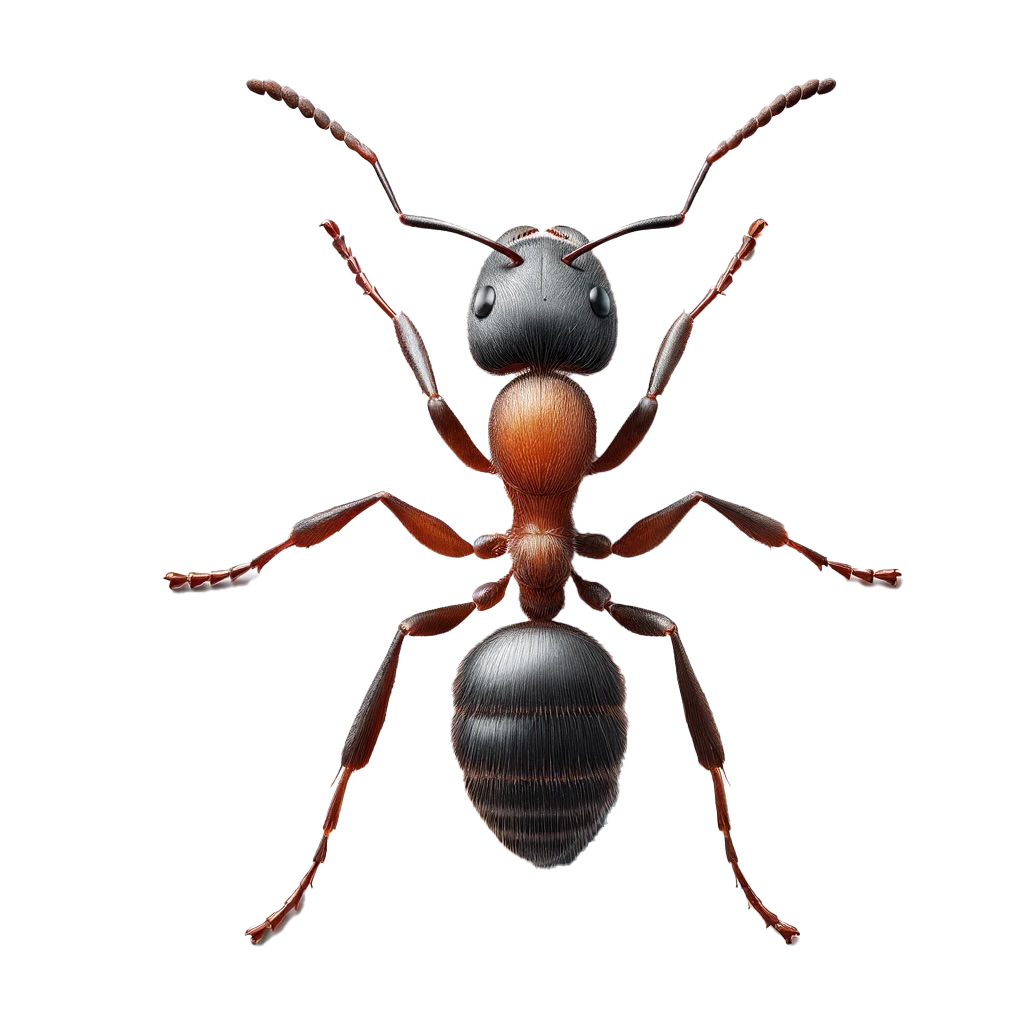All About Ants
Ants are one of the most common pests found in households. While they play important roles in ecosystems, their presence indoors can cause various issues, from food contamination to structural damage. Understanding and managing ant infestations are crucial for maintaining a healthy and safe home environment.
What are Ants?
Ants belong to the family Formicidae and are closely related to wasps and bees. Their scientific name is Formicidae, and they are commonly known as ants.
General Information: Ants are social insects that live in colonies, which can range from a few dozen to millions of individuals. They have a hierarchical structure with a queen, workers, and soldiers. Ants communicate using chemicals called pheromones and are known for their ability to work collectively to find food, build nests, and protect their colony.
How to Identify Ants
Species:
- Carpenter Ants: Large, black or dark brown ants that can cause structural damage by hollowing out wood.
- Odorous House Ants: Small, brown or black ants that emit a rotten coconut smell when crushed.
- Pavement Ants: Small, brown ants often found in pavement cracks.
- Pharaoh Ants: Small, yellow or light brown ants with a darker abdomen.
- Little Black Ants: Very small, shiny black ants often found in large numbers.
Appearance:
- Carpenter Ants: ¼ to ½ inch long, segmented bodies with a narrow waist.
- Odorous House Ants: 1/16 to ⅛ inch long, with a single node on their petiole.
- Pavement Ants: 1/8 inch long, dark brown to black with parallel lines on the head and thorax.
- Pharaoh Ants: About 1/16 inch long, light yellow to red with a darker abdomen.
Little Black Ants: About 1/16 inch long, shiny black with two nodes on their petiole.
Similar Pests: Ants can be confused with termites, which have a thicker waist and straight antennae. Unlike termites, ants have a narrow waist and elbowed antennae.
Activity and Seasonality
Active Seasons: Ants are most active during the spring and summer months when they forage for food and build nests.
Lifecycle: Ants undergo complete metamorphosis with four stages: egg, larva, pupa, and adult. The lifecycle duration varies by species but generally ranges from several weeks to a few months.
Where to Find Ants in or Around Your House
Common Habitats:
- Indoors: Kitchens, bathrooms, and areas with moisture or food sources.
- Outdoors: Soil, under rocks, in woodpiles, and in pavement cracks.
Specific Hiding Spots:
- Indoors: Behind appliances, inside wall voids, and under sinks.
- Outdoors: Around foundations, in garden beds, and near garbage bins.
How to Get Rid of Ants
Immediate Action:
- Clean up food spills and seal food containers.
- Use ant baits or traps to attract and kill ants.
Professional Treatments:
- Pest control services offer treatments such as barrier sprays and baiting systems to eliminate ant colonies.
DIY Methods:
- Use a mixture of vinegar and water to wipe down surfaces.
- Apply diatomaceous earth around entry points and nesting areas.
How to Prevent Ants
Preventive Measures:
- Seal cracks and crevices around windows, doors, and foundations.
- Keep kitchen surfaces clean and store food in airtight containers.
Home Maintenance:
- Regularly inspect and clean under appliances and sinks.
- Trim vegetation away from the house to reduce ant access.
Long-term Strategies:
- Establish a perimeter barrier treatment around the home.
- Maintain proper sanitation and waste management practices.
Suggested Blog Posts
- The Science Of Ant Control: Understanding Ant Behavior To Prevent And Control Ants In St. Charles
- 5 Effective Tips For A Carpenter Ants Free Home
- Carpenter Ants In Clinton: An Extensive Guide To Prevention And Control
Conclusion
Ant infestations can be a nuisance and pose health risks. Effective management involves identifying the species, understanding their habits, and using appropriate control and prevention methods.
If you’re dealing with an ant infestation, contact Pest Control Consultants today for a free consultation and effective treatment plan. Our expert team is here to help you keep your home ant-free.
Get Started